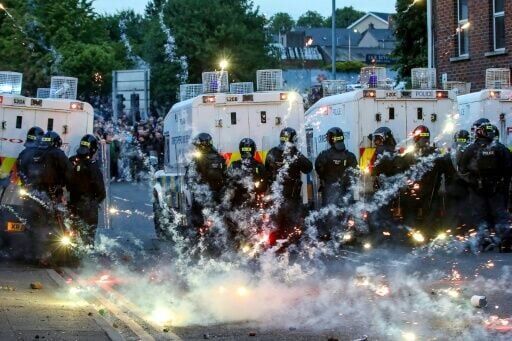Transforming Solutions: A Fresh Approach to Addressing Northern Ireland Flag Concerns

New powers tucked away in theLabour Government’s sweeping Crime and Policing Bill could change how thePSNIdeals with illegal displays of flags and banners in public spaces, especially in areas where such symbols are used to mark territory or intimidate.
Amendment to Terrorism Act 2000
At the heart of the matter is an amendment to Section 13 of the Terrorism Act 2000, which makes it a criminal offence to wear or display items in a way that could arouse “reasonable suspicion” of support for a proscribed organisation. The bill introduces new provisions to allowpoliceto seize and destroy such items if they appear in public places.
Political Responses
South Belfast and Mid DownMP Claire Hanna has welcomed the move, saying it finally addresses a long-ignored problem. Speaking ahead of the debate on the legislation in Westminster on Tuesday, Ms Hanna said: “I welcome the long-overdue legislative steps that I hope will empower the PSNI to be able to remove illegal flags and banners from our communities. For too long, these symbols have been used to intimidate people and mark territory, creating fear and tension.
Wide-Reaching Implications
The Crime and Policing Bill updates the Terrorism Act 2000 by introducing a new offence of wearing, carrying, or displaying an item, including flags, in such a way that it could arouse reasonable suspicion of support for a proscribed group. The law doesn’t ban any particular flag outright. Instead, it focuses on the context in which an item is displayed. If, for example, a flag is associated with a known paramilitary group and is being displayed in a way that suggests support for that group, then it could fall foul of the legislation.